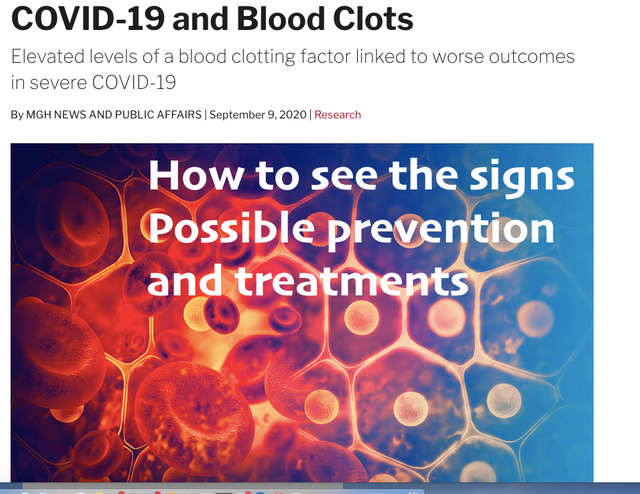
What happens if you or a loved one are thrust into the throes of navigating someone who develops Covid pneumonia?
What if oxygen is stabilized, all has been done to assist in the recovery of Covid, but they are found to have developed clots?
What options are you faced with and how do you navigate such a storm?
On one hand you may be told your best option is Remdesivir, yet now we not only have testimonies of family and friends who have warned of those perishing from renal kidney failure, but also information that has now hit mainstream media stating the following,
Remdesivir shouldn't be used on hospitalized Covid-19 patients, WHO advises
This was reported by Reuters and NBC,
The antiviral remdesivir should not be used as treatment for hospitalized Covid-19 patients, the World Health Organization said Thursday, only a month after the Food and Drug Administration approved the drug to treat patients over age 12 who are hospitalized with Covid-19.
Remdesivir, also known as Veklury, and the steroid dexamethasone are the only drugs authorized to treat Covid-19 patients. But a recent massive global study of remdesivir's effectiveness, run by the WHO, showed that remdesivir had little or no impact on hospitalized patients, contradicting previous trials.
"Remdesivir has no meaningful effect on mortality or on other important outcomes for patients, such as the need for mechanical ventilation or time to clinical improvement," experts from the WHO Guideline Development Group wrote in a statement. The review was published in The BMJ, a medical journal.
In light of the interim data from the WHO's "Solidarity" trial — which included data from more than 11,200 people in 30 countries — "remdesivir is now classified as a drug you should not use routinely in Covid-19 patients," the president of the European Society of Intensive Care Medicine, Jozef Kesecioglu, said in an interview with Reuters.
Gilead Sciences, which makes remdesivir, has questioned the WHO's findings. In in an emailed statement, the drugmaker said: "We are confident that doctors on the front lines recognize the clinical benefit of Veklury based on robust evidence from multiple randomized, controlled studies."
While doctors and hospitals are not obliged to follow the WHO's advice, the recommendation could curb the use of remdesivir.
The drug, however, remains widely used in hospitals, including in the U.S. It is authorized or approved for use in more than 50 countries, and it was one of the medicines administered to President Donald Trump when he tested positive for the coronavirus in October.
We are also told it is likely to have more impact earlier in the course of illness due to the possibility that it stops the virus from replicating.
Dr. Ken Lyn-Kew of National Jewish Health in Denver agreed that it is important to continue to study remdesivir, but he is not as enthusiastic about using the drug for patients in advanced stages of the illness. "The data show it really doesn't work very well in hospitalized patients," Lyn-Kew said.
Kesecioglu said there was not enough data about when remdesivir might be effective or for which patients, leading to the decision to discourage its routine use in intensive care.
That means doctors should use remdesivir only occasionally, not as a standard treatment for Covid-19 patients.
Ten months into the pandemic, a debate continues to rage in the medical industry about which drugs are best to treat hospitalized Covid-19 patients.
Remdesivir has potential side-effects on the kidneys, according to data Gilead shared with the European Medicines Agency, which is assessing its possible toxicity.
With all of this in mind what do you do if someone has a pulmonary embolism (blood clots) and is hospitalized with Covid Pneumonia?
Please watch for this signs if you know or are caring for someone with covid, that there could also be a pneumonia component and watch for these signs,
- shortness of breath
- chest pain particularly upon breathing in
- coughing up blood
If you see these signs get your loved one medical help immediately.
In a recent case upon consultation in an emergency room with a coagulation specialist.
aka clotting.
- the process by which blood changes from a liquid to a gel, forming a blood clot.
- Potentially results in hemostasis [a process to prevent and stop bleeding]
- to keep blood within a damaged blood vessel.
- First stage of wound healing.
- Involves coagulation, blood changing from a liquid to a gel.
Intact blood vessels are central to moderating blood's tendency to form clots.
See more information below in sources from Science Direct.
See a short video about thrombosis below in sources under Study.com
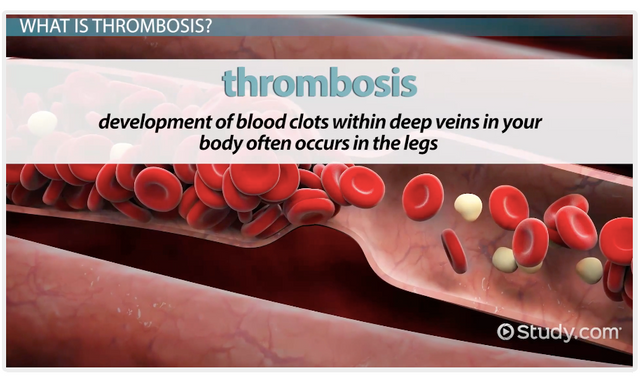
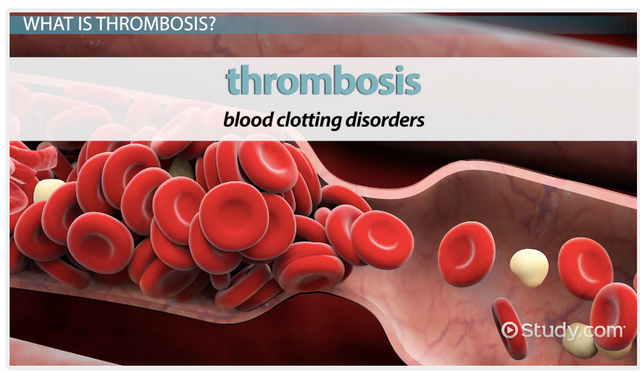

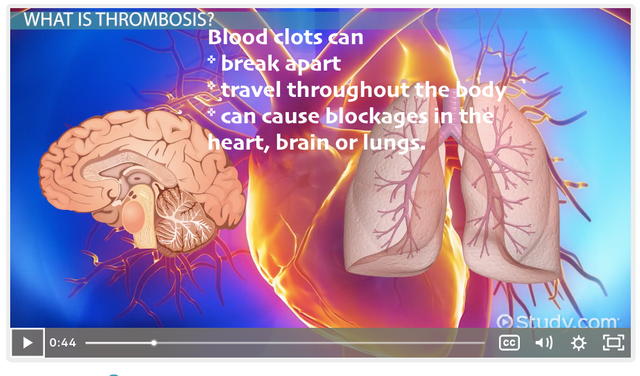

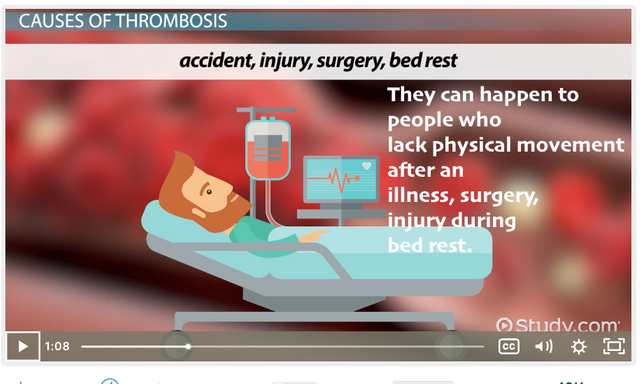
Two main symptoms
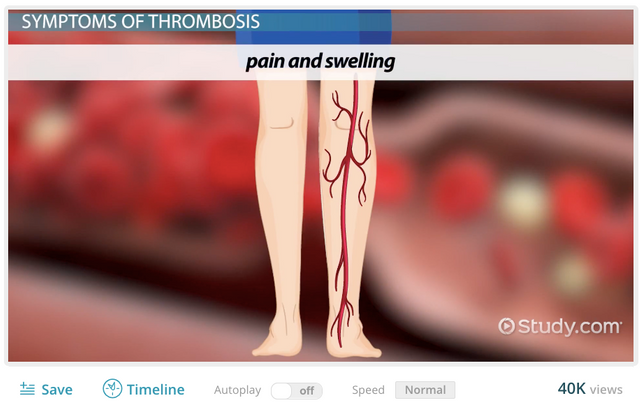
Once someone is diagnosed with thrombosis [aka deep vein thrombosis or dvt], PE [pulmonary embolism] aka blood clot what can be done?
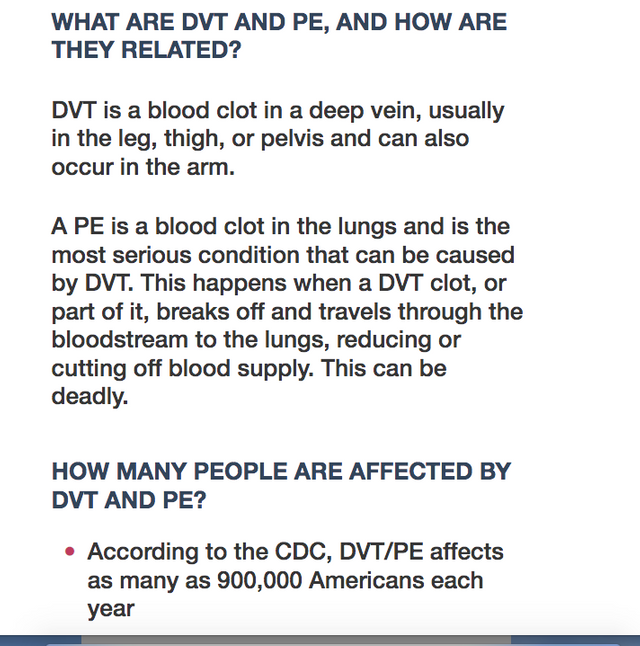
For a direct tie into this as we move into the realm of Truth and Reality go to last reply in here or search for the one towards the end dealing with The Con from the jab and the Remdesivir push.
Godspeed to all Technicians and Great Warriors! #WeWILLPrevail
Thank you for Heeding the Call!
Matthew 22:14
King James Version
14 For many are called, but few are chosen.
Thank you for standing in the Gap though you likely have had every manner of hate hurled at you!
Sources
https://www.sciencedirect.com/topics/medicine-and-dentistry/coagulation
https://study.com/academy/lesson/what-is-thrombosis-definition-symptoms-treatment.html
https://www.ncbi.nlm.nih.gov/books/NBK507917/
Why COVID-19 could be causing blood clots—and what you can do to lower your risk
https://medicine.osu.edu/sitecore/content/wexnermedical/home/blog/2020/04/blood-clots-covid
One of the articles by Dr. Mark Walsh who practices at St. Joseph Regional Medical Center
https://pubmed.ncbi.nlm.nih.gov/22164456/
Placed on Creo after TPA done.
https://www.tabletwise.net/creo-suspension
https://hms.harvard.edu/news/covid-19-blood-clots
https://medicine.osu.edu/sitecore/content/wexnermedical/home/blog/2020/04/blood-clots-covid
https://www.ncbi.nlm.nih.gov/books/NBK507917/